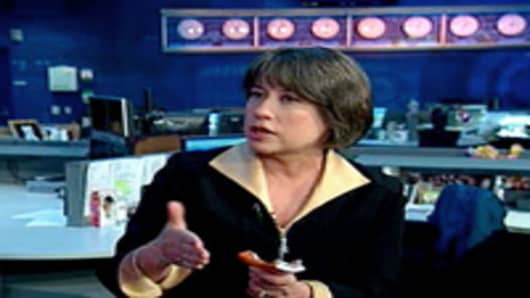In the short term, the US needs to deleverage the financial system and restore market discipline and must keep the effects of protracted low interest rates in mind, as a bubble seems to be developing in bond markets, Federal Deposit Insurance Corporation Chairwoman Sheila Bair told CNBC Tuesday.
"Longer term, I do worry about interest rate risk and the ramifications of this very long, protracted period of very low interest rates," Bair said. "Eventually they're going to start going up, and what happens? A bit of a bond bubble now, it appears, and so how do we deal with that?"
The combination of a very long, protracted period of low interest rates combined with the high liquidity in the system means "a lot of money" will seek investments that are perceived to be safe, she explained.
"And so that combination, I think, can put upward pressure on bond prices," Bair added.
"I think it's a long-term issue, not so much short term, but I also think, at least in terms of Treasury securities, it is something that the Congress and the administration need to be very aware of, as well," she said.
"I think things are fine now, but if we don't get our fiscal house in order and have some clear plan for greater and more responsible budgetary management, I think it could become a problem later," Bair said.
Her comments echo those made by Federal Reserve Chairman Ben Bernanke in a speech late Monday, when he warned that the US could face dire consequences in the future if it will not deal with its bloated budget deficit.
But the US financial system is "much more stable" now and the system is "healing," Bair said.
"We learned the hard way … with the mortgage crisis that you don't do anyone any favors by making them a loan they can't repay," she said.
Regulators want a balanced approach and want to ensure that more credit is out to support the economy but in a way that does not endanger the system, according to Bair.
"I know the larger banks maybe are unhappy sometimes when I say this, but the smaller banks seem to be keeping the loan balances up a little better than the larger institutions," she said.
US banks are in "pretty good shape" when judged by the capital accords set in Basel, and they can "easily" raise capital to the new requirement set under Basel III through retained earnings much earlier than the nine-year transition period, according to Bair.


